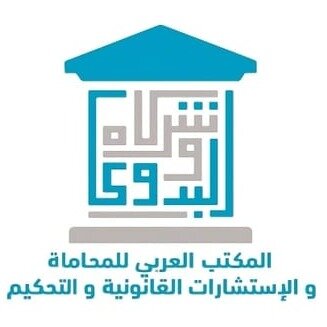Best Project Finance Lawyers in Egypt
Share your needs with us, get contacted by law firms.
Free. Takes 2 min.
Or refine your search by selecting a city:
List of the best lawyers in Egypt
About Project Finance Law in Egypt
Project Finance in Egypt is a specialized area of law that focuses on the funding of large-scale infrastructure and industrial projects through a financial structure where project debt and equity are secured primarily by the project's cash flow. Common sectors include energy, transportation, water, and real estate development. In Egypt, Project Finance involves complex arrangements between lenders, sponsors, investors, and government bodies, often underpinned by long-term contracts and regulatory approvals. This field of law seeks to balance investor confidence with the protection of national interests and the promotion of economic development.
Why You May Need a Lawyer
Navigating Project Finance in Egypt can be challenging due to the complexity of the transaction structures and the involvement of multiple parties. You may need a lawyer if you are:
- Planning to invest in a major infrastructure, energy, or industrial project in Egypt
- Seeking project funding or negotiating terms with local or international lenders
- Drafting or reviewing loan agreements, concession contracts, or joint ventures
- Ensuring compliance with Egyptian laws and applicable regulations, including sector-specific licensing
- Dealing with public-private partnerships (PPPs) or government guarantees
- Resolving disputes arising out of contractual obligations during the project's construction or operation phases
- Seeking guidance on regulatory approvals or tax structuring for the project
Legal support is essential to secure your interests, facilitate government relations, and ensure the project complies with all local requirements.
Local Laws Overview
Project Finance in Egypt is shaped by several legislative frameworks and regulatory bodies, including:
- Investment Law No 72 of 2017 - governs investments and incentives for local and foreign investors
- Public Private Partnership (PPP) Law No 67 of 2010 - sets out the legal regime for PPPs and governs long-term infrastructure contracts
- Civil Code of Egypt - includes provisions on contract formation, obligations, and enforcement
- Central Bank of Egypt regulations - impact financing arrangements, currency exchange, and fund transfers
- Sector-specific regulations - such as energy, water, or transportation laws related to licensing, operation, and tariffs
- Environmental laws and permitting requirements
When engaging in Project Finance transactions, parties must pay close attention to issues such as governmental approvals, foreign ownership restrictions, currency convertibility, tax withholding, dispute resolution mechanisms, and the ability to assign or pledge contractual rights.
Frequently Asked Questions
What types of projects commonly use Project Finance structures in Egypt?
Typical projects include power plants, renewable energy projects, desalination plants, roads, ports, industrial facilities, real estate developments, and telecommunications infrastructure.
Can foreign investors participate in Project Finance projects in Egypt?
Yes, foreign investors can participate. Egypt encourages foreign direct investment, though there may be sector-specific restrictions or minimum local participation requirements. Proper legal structuring is important to ensure full compliance.
What is the role of government entities in Project Finance?
Government entities may act as sponsors, contract counterparties, regulators, or grantors of concessions and licenses. Their participation is often key in PPP projects or when guarantees are needed to enhance project bankability.
How are project risks typically allocated?
Risks are generally allocated through detailed contracts. Lenders and sponsors negotiate who will bear risks related to construction, operation, revenue, regulatory changes, and force majeure events. Proper allocation is crucial for securing financing.
What legal documents are essential in a Project Finance transaction?
Typical documents include loan agreements, sponsor support agreements, security documents (such as pledges and mortgages), concession or PPP agreements, construction contracts, operation and maintenance contracts, and direct agreements.
How are security interests (collateral) created in Egypt?
Security interests can be created by registering mortgages, pledges, or assignments of project assets, contracts, and accounts. Registration is required to perfect these interests and give priority in case of enforcement.
Are there restrictions on currency convertibility for Project Finance?
While the Central Bank of Egypt allows for the conversion and repatriation of foreign currency in most cases, there can be temporary restrictions or delays. Legal and financial structuring can help mitigate currency risk.
What dispute resolution mechanisms are available?
Disputes may be resolved through local courts or, more commonly in international projects, by arbitration under rules of the Cairo Regional Centre for International Commercial Arbitration (CRCICA) or other recognized arbitration bodies.
What are the main sources of financing for such projects?
Financing can be obtained from commercial banks, export credit agencies, multilateral development banks, or through bond issuance. The Egyptian government may also provide support through guarantees or subsidies for strategic projects.
How long does it take to close a Project Finance transaction in Egypt?
The timeframe varies, typically ranging from several months to over a year, depending on project complexity, regulatory approvals, and negotiations among stakeholders.
Additional Resources
If you are seeking further information or official guidance, you may refer to the following organizations:
- General Authority for Investment and Free Zones (GAFI) - responsible for investment regulation and promotion
- Ministry of Finance - oversees PPP projects and fiscal policies
- Central Bank of Egypt - regulates banking, currency, and financial services
- Cairo Regional Centre for International Commercial Arbitration (CRCICA) - handles commercial and project-related arbitrations
- Egyptian Financial Regulatory Authority (FRA) - supervises capital markets and non-banking financial institutions
- Sector-specific ministries, such as Electricity, Petroleum, Housing, or Transport, for licensing and regulatory guidance
Next Steps
If you are considering pursuing or participating in a Project Finance transaction in Egypt, take the following steps:
- Define your project scope and identify potential partners, investors, and stakeholders
- Consult with a qualified lawyer who specializes in Project Finance and Egyptian commercial law
- Gather all relevant documentation, including project plans, financial models, and permits
- Assess the regulatory framework and engage with government authorities early in the process
- Negotiate clear contractual terms, paying particular attention to risk allocation, security arrangements, and dispute resolution
- Conduct thorough due diligence to identify and address potential legal, regulatory, or financial risks
- Stay informed about updates in Egyptian investment, finance, and sector-specific regulations
By securing skilled legal counsel and proactively addressing legal and regulatory requirements, you can position your project for success and avoid costly pitfalls throughout its lifecycle.
Lawzana helps you find the best lawyers and law firms in Egypt through a curated and pre-screened list of qualified legal professionals. Our platform offers rankings and detailed profiles of attorneys and law firms, allowing you to compare based on practice areas, including Project Finance, experience, and client feedback.
Each profile includes a description of the firm's areas of practice, client reviews, team members and partners, year of establishment, spoken languages, office locations, contact information, social media presence, and any published articles or resources. Most firms on our platform speak English and are experienced in both local and international legal matters.
Get a quote from top-rated law firms in Egypt — quickly, securely, and without unnecessary hassle.
Disclaimer:
The information provided on this page is for general informational purposes only and does not constitute legal advice. While we strive to ensure the accuracy and relevance of the content, legal information may change over time, and interpretations of the law can vary. You should always consult with a qualified legal professional for advice specific to your situation.
We disclaim all liability for actions taken or not taken based on the content of this page. If you believe any information is incorrect or outdated, please contact us, and we will review and update it where appropriate.
Browse project finance law firms by city in Egypt
Refine your search by selecting a city.














